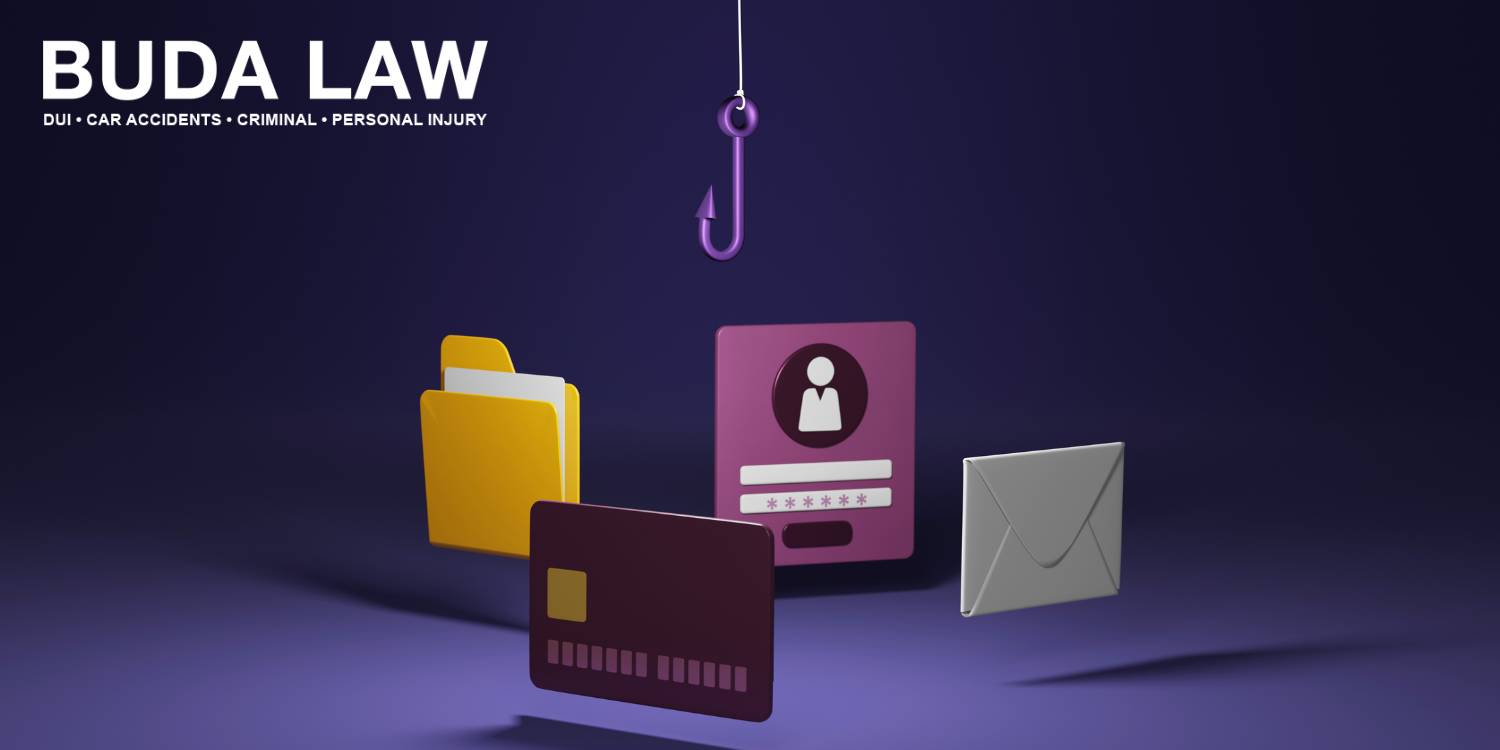Aggressively Fighting for the Best Possible Outcome
TAMPA CYBER CRIME ATTORNEY
Work with an Experienced Former Prosecutor
In an era where technology advances at a lightning pace and the digital landscape constantly evolves, cyber crime has emerged as a significant legal challenge. At Buda Law, our Tampa cyber crime attorneys combine our deep legal knowledge with a thorough understanding of the digital domain to create an aggressive defense for our clients.
Whether facing charges related to hacking, identity theft, online fraud, or other computer-related crimes, clients can trust experienced Tampa criminal defense attorney Andrew Buda to navigate the complex intersection of law and technology with precision and skill.

If you’ve been accused of a cyber crime, call Buda Law at (813) 322-2832 to schedule a confidential consultation with an experienced cyber crime attorney today.
What is a Cyber Crime?
Cyber crimes include a broad range of illegal activities conducted through digital means, typically involving the internet or computer networks. This modern form of criminality can include offenses such as hacking, cyberstalking, and various forms of online fraud and scams designed to deceive a person or group of people for financial gain.
Cyber crimes can affect individuals, corporations, and even governments, posing significant challenges to privacy, security, and financial stability. The digital nature of these crimes allows them to transcend traditional physical boundaries, making detection, prevention, and prosecution challenging.

Common Types of Computer Crimes
Computer crimes have become increasingly sophisticated and varied in the rapidly evolving digital age, presenting new challenges for cybersecurity experts, law enforcement officers, and legal professionals alike.
Identity Theft
Identity theft is a common cybercrime where individuals unlawfully use someone else’s data for fraud, often leading to financial gain. With the emergence of digital technology, methods like phishing, malware, and data breaches have made it easier for cybercriminals to access personal information. If you’re facing these charges, call a Tampa identity theft lawyer at Buda Law today.
Hacking
Hacking is the unauthorized entry or manipulation of computer systems, networks, or data, often carried out by individuals or groups with technical expertise. Hackers may exploit vulnerabilities in software and hardware to gain access, steal sensitive information, disrupt services, or for other malicious purposes.
Credit Card Fraud
Credit card fraud involves the unauthorized use of another person’s credit card information to make purchases or withdraw funds. This kind of fraud can occur in various ways, including physical card theft, skimming devices that capture card details at points of sale or ATMs, and online breaches where hackers access stored credit card data.
Cyberstalking
Cyberstalking is a form of harassment where the perpetrator uses digital technologies to repeatedly threaten, harass, monitor, or intimidate a target, often leading to significant psychological distress for the victim. This modern stalking method can involve various online platforms, including social media accounts, email, instant messaging, and other digital communication tools.
Cyberstalkers may employ cyber bullying tactics such as sending threatening messages, spreading malicious rumors, sextortion, disclosing personal information without consent, or even using technology to track the victim’s location.
Child Pornography
Child pornography involves the creation, distribution, possession, or viewing of sexually explicit materials featuring minors. Widespread access to the internet has significantly amplified the availability of such content.
Phishing
Phishing involves cybercriminals impersonating reputable sources to deceive people into disclosing confidential details, including passwords, financial data, or identity information.
Commonly executed through emails, these scams entice victims with compelling or urgent prompts to click on harmful links or attachments, directing them to fake websites crafted to capture the information provided.

Intellectual Property Theft
Intellectual Property (IP) Theft is the unauthorized use, reproduction, or distribution of copyrighted, patented, or trademarked material without the owner’s consent. This can range from pirating movies and music to copying software, designs, or patented inventions.
Spoofing
Spoofing refers to disguising one’s identity by falsifying information, making communications appear as if they are coming from a trusted, legitimate source. This tactic is often used in phishing attacks, caller ID spoofing, and manipulating IP addresses or email headers.
Ransomware Attacks
Ransomware incidents deploy harmful software to encrypt a victim’s data or deny access to their system, with the perpetrator requiring a ransom for the decryption key or system reentry.
Online Fraud and Scams
Online fraud and scams encompass various deceptive practices that exploit the internet to defraud victims. These schemes can include phishing attacks, auction fraud, fake retail websites, investment scams, and more designed to steal money, personal information, or both.
Data Breaches
Data breaches involve the unauthorized access and extraction of sensitive, protected, or confidential information from a system, often leading to the exposure of personal data, intellectual property, or corporate secrets.
Cyber Espionage
Cyber espionage involves the covert use of digital means to obtain secret or classified information from individuals, organizations, or governments without their consent, often for strategic, political, or economic advantage.

What are the Penalties for Cyber Crimes in Florida?
In Florida, the penalties for cyber crimes vary depending on the nature and severity of the offense. For minor offenses, such as unauthorized access to a computer system (a third-degree felony), penalties can include up to 5 years in prison, 5 years of probation, and fines costing up to $5,000.
More serious offenses, like cyberstalking or the distribution of child pornography, are treated with greater severity. Such crimes can lead to second-degree felony charges, with potential penalties including up to 15 years in prison, 15 years of probation, and fines up to $10,000.
In cases involving extensive financial loss or significant harm to individuals or institutions, the courts may impose even harsher penalties, including longer prison terms and larger fines.
Additionally, individuals convicted of cyber crimes in Florida may also face restitution orders to compensate victims for their losses. If you’ve been charged with a felony cyber crime, contact the Tampa felony defense attorneys at Buda Law today.
The Seriousness of Cyber Crime Allegations
The seriousness of cyber crime allegations cannot be overstated, as these charges can lead to severe legal consequences, including substantial fines, lengthy prison terms, and lasting damage to one’s personal and professional reputation.
For those accused, it’s not just about facing the immediate penalties; the long-term implications can alter the course of their lives, affecting employment opportunities, personal relationships, and social standing.
A Tampa criminal defense attorney can play a crucial role in challenging the allegations, scrutinizing the prosecution’s evidence, and ensuring that the accused’s rights are vigorously defended throughout the legal process. In this high-stakes environment, the experience and strategic understanding of a seasoned criminal defense lawyer are indispensable assets for anyone facing cyber crime allegations.

Why You Need an Experienced Internet Crime Lawyer Like Andrew Buda
Partnering with an experienced computer crimes lawyer like Andrew Buda is crucial when facing cyber crime allegations. As a former prosecutor, Attorney Andrew Buda brings a unique perspective to your case, combining deep legal knowledge with an insider’s understanding of prosecution strategies. This dual insight enables him to anticipate and counteract the tactics used by the prosecution, crafting a defense strategy that addresses the nuances of your situation.
His experience handling various computer-related offenses, from identity theft to cyberstalking, ensures that he is well-versed in the complexities of cyber law and computer forensics. In the rapidly evolving world of computer crime, having someone like Andrew Buda by your side can make a considerable difference in navigating the legal challenges and protecting your rights effectively.
Aggressive Defense For Internet Crimes in Tampa, FL
In Tampa, FL, defending against internet crimes demands an assertive approach due to the complexity of cyber offenses and the serious repercussions that come with a conviction. As such, effective defense strategies require a deep understanding of cyber laws and digital technologies, challenging the prosecution’s evidence, and questioning digital evidence collection methods. The goal is to protect clients’ rights, minimize potential legal repercussions, and navigate the intricate legal and technological challenges that define internet crime cases in Tampa, FL.

Call a Florida Cyber Crime Defense Attorney at Buda Law Right Away
If you’re facing a potential cybercrime conviction in Florida, acting quickly and securing experienced legal representation is crucial. Contacting a Tampa cyber crime attorney at Buda Law can make a significant difference in your case and increase your chances of securing the best possible outcome.
Don’t face such serious allegations alone. Call our Tampa-based law firm at (813) 322-2832 for a free consultation to learn more about how our cyber crime attorneys can help you through this difficult time.
CASE RESULTS
Get the Toughness of a Trial Attorney
START BUILDING YOUR CASE
Schedule a Free Consultation
WHAT MAKES OUR DEFENSE SO EFFECTIVE?
- Former State Prosecutor
- Highly Responsive & Accessible
- Result-Oriented Advocacy
- We Prepare Every Case as if it's Going to Trial
- Personal Representation Centered Around You
- Exceptional Negotiator
